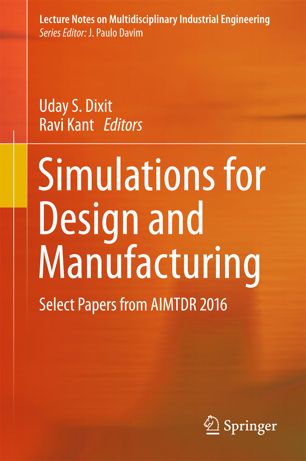

Most ebook files are in PDF format, so you can easily read them using various software such as Foxit Reader or directly on the Google Chrome browser.
Some ebook files are released by publishers in other formats such as .awz, .mobi, .epub, .fb2, etc. You may need to install specific software to read these formats on mobile/PC, such as Calibre.
Please read the tutorial at this link: https://ebookbell.com/faq
We offer FREE conversion to the popular formats you request; however, this may take some time. Therefore, right after payment, please email us, and we will try to provide the service as quickly as possible.
For some exceptional file formats or broken links (if any), please refrain from opening any disputes. Instead, email us first, and we will try to assist within a maximum of 6 hours.
EbookBell Team

5.0
98 reviewsThis book focuses on numerical simulations of manufacturing processes, discussing the use of numerical simulation techniques for design and analysis of the components and the manufacturing systems. Experimental studies on manufacturing processes are costly, time consuming and limited to the facilities available. Numerical simulations can help study the process at a faster rate and for a wide range of process conditions. They also provide good prediction accuracy and deeper insights into the process. The simulation models do not require any pre-simulation, experimental or analytical results, making them highly suitable and widely used for the reliable prediction of process outcomes. The book is based on selected proceedings of AIMTDR 2016. The chapters discuss topics relating to various simulation techniques, such as computational fluid dynamics, heat flow, thermo-mechanical analysis, molecular dynamics, multibody dynamic analysis, and operational modal analysis. These simulation techniques are used to: 1) design the components, 2) to investigate the effect of critical process parameters on the process outcome, 3) to explore the physics of the process, 4) to analyse the feasibility of the process or design, and 5) to optimize the process. A wide range of advanced manufacturing processes are covered, including friction stir welding, electro-discharge machining, electro-chemical machining, magnetic pulse welding, milling with MQL (minimum quantity lubrication), electromagnetic cladding, abrasive flow machining, incremental sheet forming, ultrasonic assisted turning, TIG welding, and laser sintering. This book will be useful to researchers and professional engineers alike.